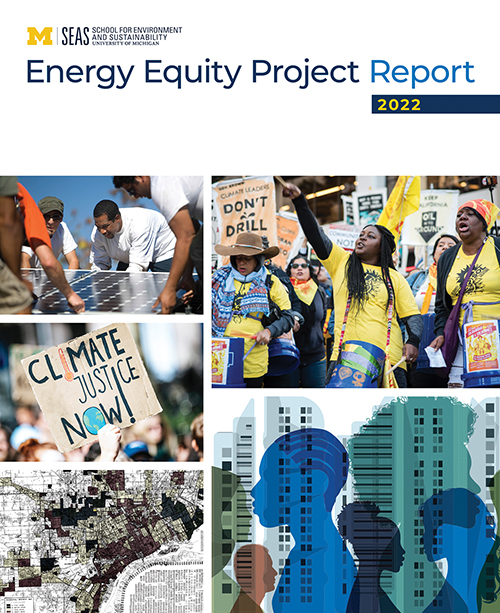
SEAS Releases First National Framework Designed to Measure and Advance Energy Equity
To bolster a just transition to cleaner, more resilient energy systems, the Energy Equity Project (EEP)—housed at SEAS—released the first standardized national framework for comprehensively measuring and advancing energy equity.
“For decades, Black, Indigenous, and People of Color (BIPOC), frontline and low-income communities have borne the brunt of the negative impacts of the energy system while receiving a negligible slice of benefits from the clean energy transition,” says EEP Project Manager Justin Schott (MS ’06). “With the EEP Framework, we are both illuminating these inequities and establishing a process for reversing them. We can hope for the day when energy equity is the norm, but until then, the Framework is a powerful tool for accountability and ensuring measurable progress.” 
The Framework—which builds on the longtime contributions of energy justice leaders and frontline communities—was launched by SEAS Associate Professor Tony Reames, now serving as deputy director for energy justice at the U.S. Department of Energy while on leave from U-M. EEP’s development is the result of 15 months of collaboration, including 10 listening sessions with over 400 participants representing utilities, regulators, nonprofit and academic practitioners, community organizations and philanthropists. Forty-five workgroup members—leaders in energy equity from around the country—developed guiding principles, and determined how to represent equity through metrics, data and best practices.
The release of the Framework comes at a critical time, as energy justice is now a requirement for acceptance of federal funds, most notably the infrastructure bill. The Biden administration’s Justice40 Initiative pledges to deliver 40 percent of climate investment benefits, including clean energy and energy efficiency, to disadvantaged communities. Yet efforts to define and identify both benefits and disadvantaged communities have primarily relied on demographic data—leaving significant gaps in recognizing energy affordability and climate resilience.
The Framework was designed to remedy those gaps, ensuring BIPOC, frontline and low-income communities receive the benefits they deserve—and is primed for immediate adoption by government agencies, community organizations, regulators and utilities.
“The project’s commitment to genuine democratic collaboration has fostered transformational results that will change the lives of communities who have suffered from high energy costs, pollution and few opportunities for renewable energy,” says Kyle Whyte, the George Willis Pack Professor at SEAS, who currently serves on the White House Environmental Justice Advisory Council and is the principal investigator of EEP.
This year, EEP will release an interactive national map of energy equity data accessible to the general public. Users will be able to identify census tracts of concern, such as those who are at high risk from heat waves and have a high population of seniors who live alone.
EEP also will issue a call for partners who see opportunities to use the EEP Framework to further their local energy equity priorities. These could range from developing local energy equity indicators to making public engagement processes more accessible and transparent. EEP will prioritize applications from BIPOC and frontline community organizations. For all other potential users of the framework, EEP will offer a free series of trainings on how to apply the framework. EEP was funded by the Energy Foundation, the Joyce Foundation and Crown Family Philanthropies.

